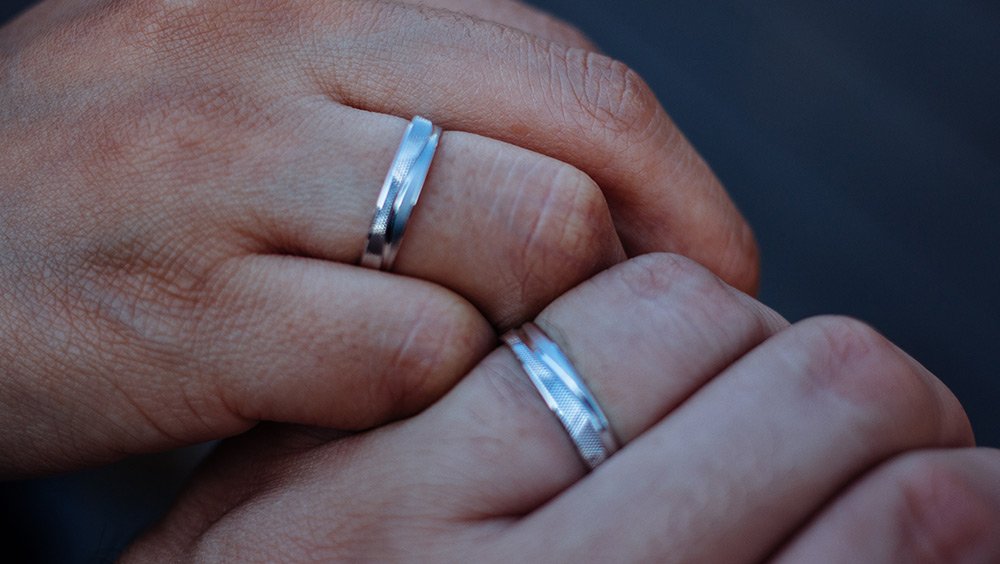Supreme Court To Weigh Free Speech Against Anti-Discrimination Laws

The future of state and federal laws that protect against discrimination on the basis of sexual orientation. The ability to operate your business as you want, without the government telling you to compromise your beliefs.
These are the issues at stake in 303 Creative LLC v. Elenis, a case the Supreme Court will hear this term.
Lorie Smith is the owner of 303 Creative LLC, a graphic and website design company in Colorado. Smith decided to explore offering wedding website services with one caveat: While she was willing to work with LGBTQ+ customers, she would not create websites for same-sex weddings, explaining that “doing that would compromise my Christian witness and tell a story about marriage that contradicts God’s true story of marriage – the very story He is calling me to promote.”
Such a refusal could violate the Colorado Anti-Discrimination Act (CADA), which prohibits refusing service because of sexual orientation (among other things) and prohibits publicly communicating that position.
Smith preemptively filed a lawsuit in federal court saying that these provisions violate her First Amendment rights to free speech and free exercise of religion. A district court and federal appeals court have both ruled against her.
Now, the Supreme Court will hear the case. It will consider only whether Colorado’s law violates the First Amendment’s protection of free speech.
Smith argues that Colorado forces her and other artists to express themselves in conflict with their deeply held beliefs. Compelling speech is the same as restricting speech in the eyes of the First Amendment. Worse yet, she argues, the law promotes only one viewpoint by punishing those who oppose same-sex marriage.
Smith argues that CADA fails the strict review that a court applies in either situation. The government doesn't need to force 303 Creative to provide services to gay couples because Smith otherwise provides those services to the general public, and someone seeking design of a same-sex wedding website could easily find someone else to do it in their area. Colorado also has other, less intrusive ways to protect against discrimination without violating free speech. For instance, the state could allow business owners to decline specific projects based on the message they are asked to convey, rather than the identity of the customer. It could apply the law only to businesses that provide essential services like food, lodging or medical care.
Colorado argues that its law is a legal and necessary way to combat discrimination because it focuses not on the content of expression but on commercial conduct by any business offering services to the public – website designer, baker or otherwise. To the extent there is a message communicated in designing a website, Colorado says it is an expression by the customer, not the business owner.
Where America Stands: In a Freedom Forum survey, 33% of people said business owners should be required to serve customers when the customers’ requests conflict with the owners’ religious beliefs. But 37% say they should not.
The Supreme Court heard a similar case about CADA in 2018. In Masterpiece Cakeshop Ltd. v. Colo. C.R. Comm’n, the court ruled in favor of Jack Phillips, who refused to create a custom cake for a gay couple. But it did so because members of the Colorado Human Civil Rights Commission imposed their own beliefs in finding Phillips violated CADA. The court did not rule on the constitutionality of the discrimination law or its possible limits on free speech.
But it has ruled on similar issues. In Hurley v. Irish American Gay, Lesbian and Bisexual Group of Boston (1995), the Supreme Court said that the privately operated South Boston St. Patrick’s Day Parade had a First Amendment right to exclude an organization of gay Irish Americans from marching in its parade. Five years later, in Boy Scouts of America v. Dale, the court said the Boy Scouts could revoke the membership of an openly gay scout leader.
Regardless of how the court rules, this won’t be the end of the discussion. Cases involving other business owners who claim protection for their artistic expression are already being filed around the country. Wedding photographer Chelsey Nelson won in federal district court in Louisville, Ky., in August and will not have to offer her services to same-sex weddings. Four other wedding photographers have cases pending.
It’s only a matter of time before other bakers, chefs, wedding singers, hair stylists, dress designers and printing services ask courts to weigh in on their desire to refuse services. And who else might be an artist who can claim exemption based on their beliefs? An architect? A landscape designer? A “sandwich artist”? Does this mean that as more and more business is done exclusively online, anyone who creates a website as part of their business transactions can claim such an exemption?
If 303 Creative wins this case, might a business owner legally refuse to provide creative services to a customer of a different race, religion, gender or ethnicity, as odious as that may seem?
Anything but an improbable definitive ruling from the Supreme Court in favor of Colorado’s law is likely to lead to more questions about the balance between business owners’ beliefs and access to their services.
Kevin Goldberg is First Amendment specialist for the Freedom Forum. He can be reached at kgoldberg@freedomforum.org.
Chilling Effect: Discouraging the Use of Our First Amendment Freedoms
Can You Get Sued for Leaving a Bad Review?
Related Content
Religion. Speech. Press. Assembly. Petition.
Learn about the First Amendment.

